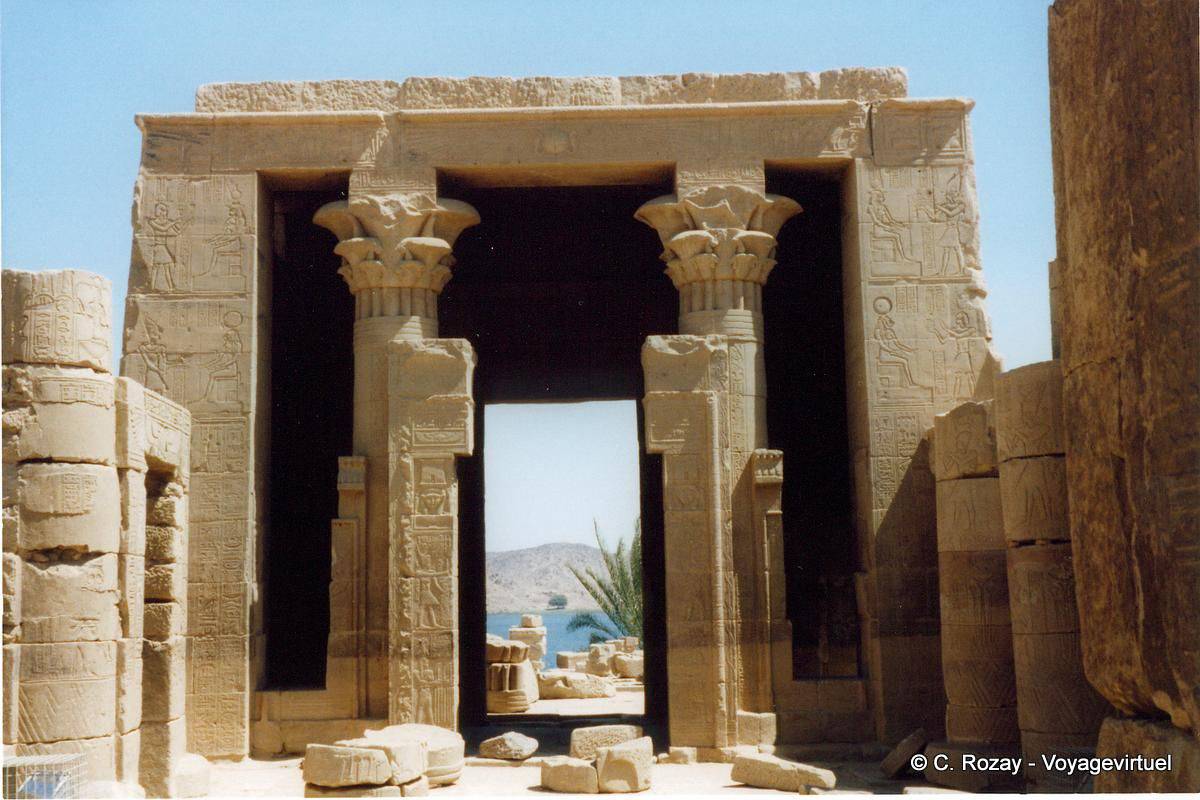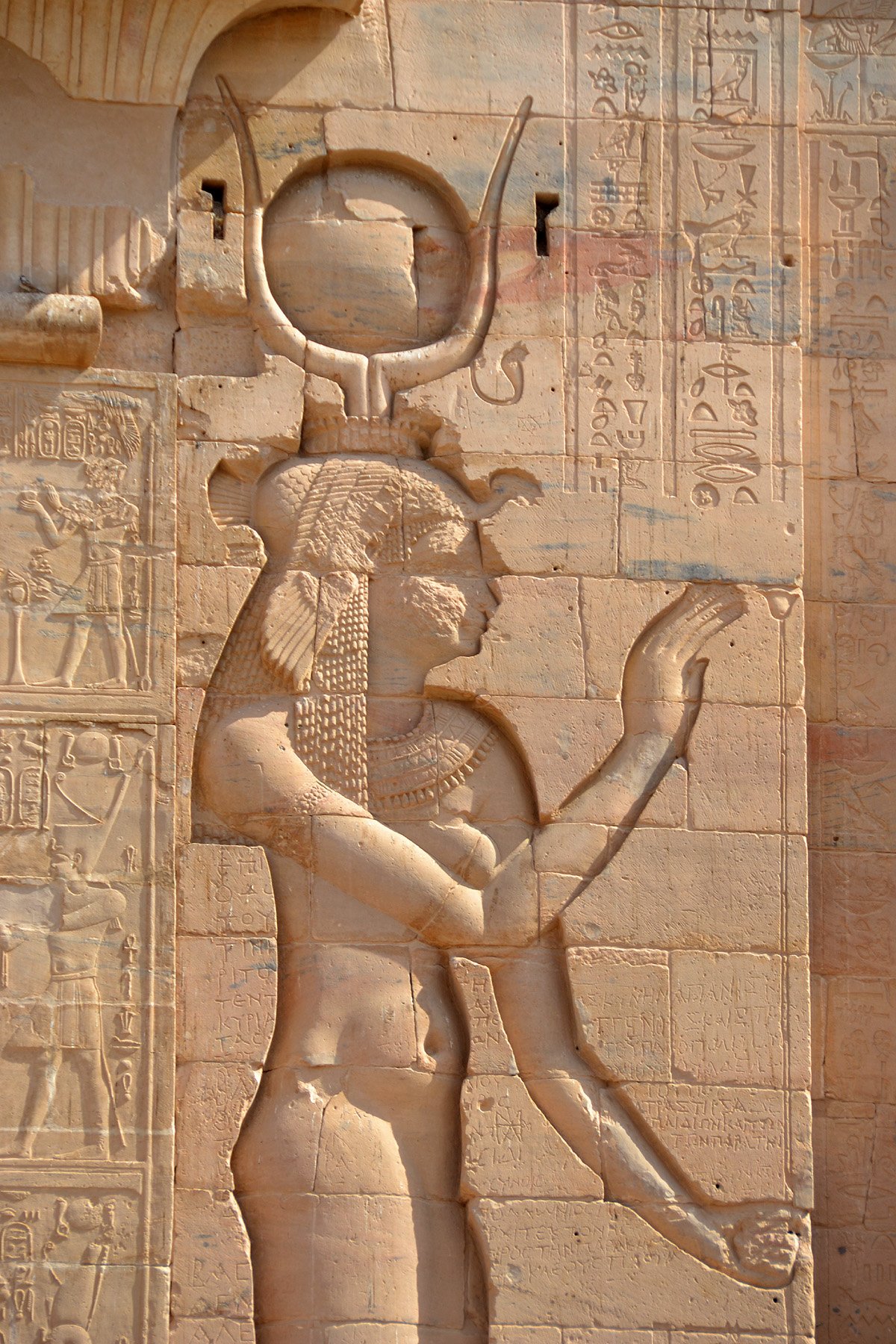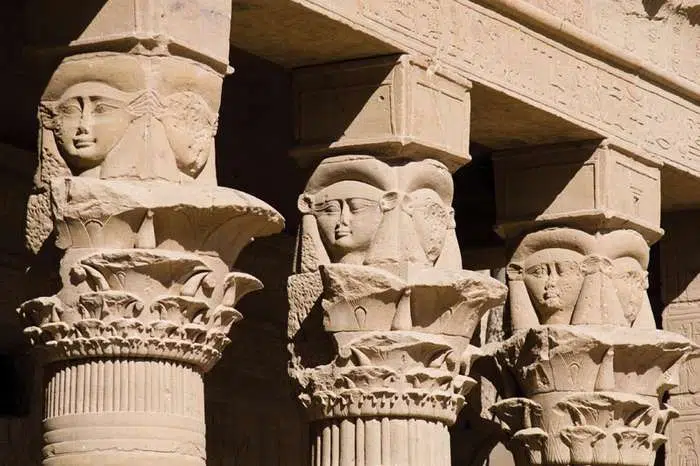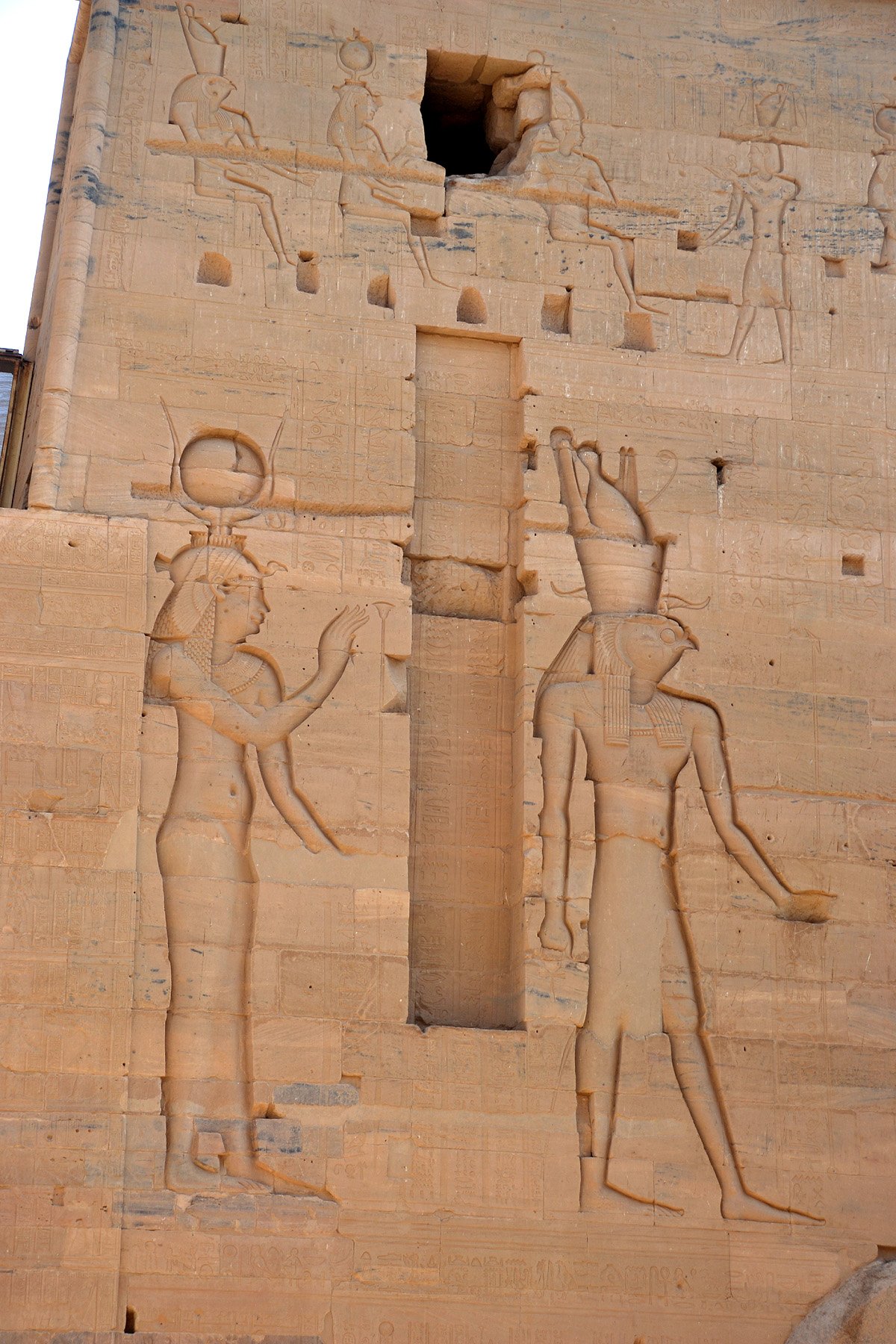The Philae Temple complex in Aswan, Egypt, is home to a stunning relief of the goddess Hathor, celebrated as the deity of love, music, joy, and motherhood in Egyptian mythology. Instantly recognizable by the sun disk nestled between cow horns atop her head, Hathor’s symbolic image reflects her nurturing and celestial attributes. Her role as a deity of fertility and protection made her a central figure in Egyptian spiritual life.

A Masterpiece of Egyptian Craftsmanship
The relief of Hathor at Philae showcases the incredible artistry of ancient Egypt. The intricate detailing of her headdress and garments highlights the skill and dedication of the craftsmen who sought to immortalize her divine presence. Surrounding hieroglyphics narrate spiritual practices, including ceremonies and rituals, further emphasizing Hathor’s significance in the cosmic order. Traces of original pigments, such as red and Egyptian blue, suggest that the carving was once vibrant, reflecting the dynamic energy associated with the goddess.

The Spiritual Heart of Philae Temple
While the temple is primarily dedicated to Isis, Hathor holds a prominent place in its sacred spaces. The close connection between Isis and Hathor in mythology celebrates themes of fertility, harmony, and divine femininity. Philae Temple was a center for worship and spiritual gatherings, with rituals invoking these goddesses to ensure prosperity and balance.

Preservation and Legacy
The temple complex faced submersion due to the construction of the Aswan High Dam but was relocated to Agilkia Island in the 1960s as part of a UNESCO project. This monumental effort preserved its invaluable carvings and inscriptions, including the relief of Hathor, allowing modern audiences to appreciate the artistic and cultural legacy of ancient Egypt.

Eternal Inspiration
Philae Temple offers a glimpse into a world where art and spirituality were inseparable. Hathor’s depiction, with her lifelike features and symbolic attributes, continues to captivate visitors, bridging the past and present. This relief remains a powerful reminder of the ingenuity and devotion of a civilization that sought to immortalize the divine through unparalleled artistry.
Philae and Hathor’s enduring presence reaffirm ancient Egypt’s profound influence on history, culture, and the human imagination.

